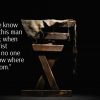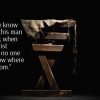The suspension of a Tory councillor hints at a growing intolerance for our official religion
At a time when society is increasingly turning against Christians for their beliefs, they will find little sanctuary in the Church of England.
“Pride is not a virtue but a sin” tweeted King Lawal, a Tory councillor who has just been suspended from the Party and is under investigation by Conservative headquarters. King Lawal defended his position, explaining: “what I said was biblically sound and a protected expression of the Christian faith”.
“Pride” to the traditional Christian mind, is one of the seven deadly sins; but to society’s ears, the word has become wrapped up, first with LGBT rights, and now with broader social justice activism.
Lawal joins the ranks of an increasing number of Christians who will feel that modern-day Britain can no longer be a natural home for those who hold certain beliefs: Isabel Vaughan-Spruce, a charity worker, was arrested twice and charged on four counts for silent prayer “thought crime” near an abortion facility. Dr David MacKereth, a Christian doctor, was sacked after misgendering trans patients because it violated his conscience. He later lost a discrimination claim against the Government, with the tribunal concluding that beliefs which restrict the fundamental rights of others are not protected under the Equality Act.
What is equally troubling is how traditional Christian beliefs, grounded in the Gospel, are coming into conflict with the New Religion, not just within society at large – but within the church itself.
The Church of England is becoming consumed by ideas that are not only extraneous to traditional Christian teachings, but in some cases, are opposed to it. Those who hold to these teachings are being squeezed out. In some instances the leadership, eager to swallow every so-called “progressive” pill, now seem to view Christ Himself as a problem.
How else can we interpret Stephen Cottrell’s complaints that the Lord’s Prayer is problematic? “This, then, is how you should pray” says Christ himself, in Matthew 6:9. Yet the Most Reverend and Right Honourable Stephen Cottrell thinks its language is too patriarchal. While parishes are turning into dust, churches left to “lie fallow”, bishops’ attention is taken up by follies like a commission into gendered language.
It was reported last week that York Minster has allegedly prevented a pro-life group, who are critical of the Archbishop of Canterbury, from attending public worship within the cathedral, while allowing climate activists to enter placards in hand. It has since denied the claims.
Bristol Cathedral recently hosted an event with Bristol Climate Choir and Extinction Rebellion, processing with banners, through the church in a spectacle that resembled something of a medieval or pagan ritual. The Bishop of Bristol has, in the past, been explicit in her support of XR activist clergy. Commenting on the acquittal of Rev Sue Parfitt after she engaged in peaceful protest outside a Ministry of Defence site, Rev Vivienne Faull said: “I share with her the conviction that the world is facing a climate and ecological crisis and that we are not yet moving fast enough to tackle it”.
Such is the fixation with Net Zero that the Church of England is said to be considering “human composting” as an alternative to burial or cremation. Bishops may establish a consultation group to assess “theological considerations”.
Teaching guidance issued by the Diocese of Edmundsbury and Ipswich states that pupils should learn about white privilege using the “white supremacy pyramid”. No surprise, perhaps, given that the Bishop of St Edmundsbury criticised the Government’s Commission on Race and Ethnic Disparities report after it found that factors such as family structure, class and socio-economic background had a greater impact on life chances than race. The Bishop maintained “there is no shortage of evidence of systemic racism, even if the [report] sought to argue against that”.
The Church’s Chief Education Officer, the Revd Canon Nigel Genders defended the guidance, arguing that teaching racial justice has “never been more important”. He backed CofE schools teaching “the enduring impact of slavery and the reality of institutional and systemic racism” and held that this work was “fundamental to what we believe as Christians”.
In the Diocese of Bristol sits the twelfth century Malmesbury Abbey, where Æthelstan – the first Rex Anglorum, “King of England” – is buried. I was last there for a funeral and remembered it having an atmosphere heavy with ancient sanctity. Paying another visit recently, what did I find? A coffee shop, sofas, television screens advertising a skate park in the Abbey, and a sprawling gift shop within the Abbey church. It seemed as though the place had been desecrated, and it was impossible not to leave feeling sad, robbed and resigned.
Has the Bishop of Bristol forgotten Christ’s words in the Temple: “my house will be called a house of prayer, but you have made it a den of thieves”? I am certain they can’t see why any of this is offensive and disrespectful, but that is indicative of the problem.
When it is not selling playing cards alongside the hallowed funerary monument to England’s first king, the Church of England is becoming so animated by controversial political ideas and syncretising these beliefs into a new theology that it looks as if they are dispensing of Christianity itself.
source














Post comments (0)